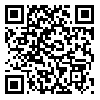Volume 17, Issue 4 (ٌWinter 2023)
jmed 2023, 17(4): 334-341 |
Back to browse issues page
Anurag Yadav * 

 , Manoj Kumar
, Manoj Kumar 

 , Nagababu Paydala
, Nagababu Paydala 

 , Ravi Kumar Gundala
, Ravi Kumar Gundala 

 , Mohammad Shamshad Hussain
, Mohammad Shamshad Hussain 

 , Golla Anmol Manaswini Yadav
, Golla Anmol Manaswini Yadav 

 , Nandakumar LG Yadav
, Nandakumar LG Yadav 




 , Manoj Kumar
, Manoj Kumar 

 , Nagababu Paydala
, Nagababu Paydala 

 , Ravi Kumar Gundala
, Ravi Kumar Gundala 

 , Mohammad Shamshad Hussain
, Mohammad Shamshad Hussain 

 , Golla Anmol Manaswini Yadav
, Golla Anmol Manaswini Yadav 

 , Nandakumar LG Yadav
, Nandakumar LG Yadav 


Associate professor, Department of Biochemistry, MNR Medical College & Hospital, Sangareddy, Telangana, India , Yadav.anurag52@gmail.com
Abstract: (302 Views)
Introduction: The oldest and most popular teaching style in medicine and related fields is the lecture. They are affordable and at least as good at transferring knowledge as other instructional techniques. The present study aimed to assess the effect of lecture-based education, role-playing and learning through peers on learning and satisfaction among MBBS students.
Methods: This descriptive study was conducted among the MBBS student studying at MNR Medical College & Hospital. Total of 446 students were approached to fill the predesigned questionnaire for the response. The questionnaire in Google form was shared to students via email, WhatsApp and Telegram (Google form link: https://forms.gle/YfkNojfV5az5Q6AW8). The questionnaire contained two sections, demographic information included age, gender, and year of course and second part included the 10 questions. Students expressed their views on the questionnaire expression based on a five point Likert scale.
Results: Total of 340 students with mean age of 19.65±1.22 yrs responded to the questionnaire shared. Among them 61.8% were female students and 38.2% were male students. Most students responded with strongly agree for the role play mode of learning compared to the traditional lecture based learning and also peer learning (p<0.001).
Conclusion: According to the findings, students are more satisfied with participatory methods such as role playing than with lecture and learning through peers. There were upsides for each method of learning in itself as responded by the participants.
Keywords: Medical Education, Satisfaction, Role Play, Peer learning, Lecture
Methods: This descriptive study was conducted among the MBBS student studying at MNR Medical College & Hospital. Total of 446 students were approached to fill the predesigned questionnaire for the response. The questionnaire in Google form was shared to students via email, WhatsApp and Telegram (Google form link: https://forms.gle/YfkNojfV5az5Q6AW8). The questionnaire contained two sections, demographic information included age, gender, and year of course and second part included the 10 questions. Students expressed their views on the questionnaire expression based on a five point Likert scale.
Results: Total of 340 students with mean age of 19.65±1.22 yrs responded to the questionnaire shared. Among them 61.8% were female students and 38.2% were male students. Most students responded with strongly agree for the role play mode of learning compared to the traditional lecture based learning and also peer learning (p<0.001).
Conclusion: According to the findings, students are more satisfied with participatory methods such as role playing than with lecture and learning through peers. There were upsides for each method of learning in itself as responded by the participants.
Keywords: Medical Education, Satisfaction, Role Play, Peer learning, Lecture
Type of Study: Research |
Subject:
Medical Education
Received: 2022/08/22 | Accepted: 2023/02/7 | Published: 2023/03/5
Received: 2022/08/22 | Accepted: 2023/02/7 | Published: 2023/03/5
| Rights and permissions | |
 |
This work is licensed under a Creative Commons Attribution-NonCommercial 4.0 International License. |

